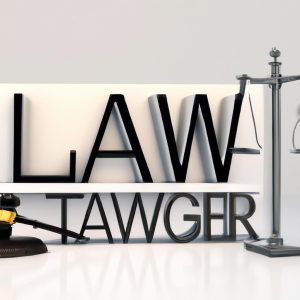Introduction
When a loved one passes away, their estate needs to be managed and distributed according to their wishes or applicable laws. In New York, the individual responsible for overseeing the estate administration is known as the executor. Being named an executor is an important role with significant responsibilities and legal obligations. Morgan Legal Group PLLP, a reputable law firm located in New York City, is here to guide you through the process of becoming an executor of an estate in New York. This comprehensive guide will provide you with the essential information to understand how to assume this vital role effectively and navigate the legal complexities involved.
What Is an Executor?
An executor, also referred to as a personal representative, is a person appointed in a will to manage the estate administration process after the testator’s (the deceased individual’s) death. The executor’s primary duty is to ensure that the decedent’s wishes are carried out as outlined in the will. In cases where there is no will, or the will does not name an executor, the court will appoint an administrator to fulfill this role.
Who Can Be an Executor in New York?
In New York, certain eligibility requirements must be met to become an executor:
1. Age and Legal Capacity
To serve as an executor, you must be at least 18 years old and possess the legal capacity to handle financial and legal matters.
2. Residency
While New York law does not require executors to be residents of the state, appointing someone familiar with New York’s probate laws and procedures is generally recommended.
3. Disqualification
Certain individuals are disqualified from serving as executors in New York. This includes individuals convicted of a felony, those who lack mental capacity, and individuals who have been determined by the court to have committed fraud or mismanagement in a previous fiduciary role.
How to Become an Executor of an Estate in New York
Assuming the role of an executor involves several steps, from accepting the appointment to fulfilling the responsibilities associated with estate administration.
1. Confirm Your Appointment
The first step is to determine whether you have been named as the executor in the deceased’s will. If the testator has not explicitly informed you of your appointment, you may need to review the will’s contents or consult with the family’s attorney.
2. Seek Legal Counsel
You will have various legal responsibilities and duties as an executor. Seeking legal counsel from an experienced estate attorney, such as those at Morgan Legal Group PLLP, is highly recommended. A knowledgeable attorney will provide guidance and help you understand your obligations throughout the process.
3. Petition the Surrogate’s Court
To become the official executor, you must petition the Surrogate’s Court in the county where the deceased resided at the time of their death. The petition will include relevant information about the deceased, the will (if applicable), and your appointment as the executor.
4. File Necessary Documents
Alongside the petition, you will need to file the original will (if one exists) and the testator’s death certificate. You may also need to submit other supporting documents as required by the Surrogate’s Court.
5. Obtain Letters Testamentary
If the Surrogate’s Court approves your appointment, you will receive “Letters Testamentary,” legal documents confirming your authority as the executor. These letters grant you the power to handle the estate’s affairs.
6. Gather and Inventory Assets
Once appointed, your first task as an executor is to compile a comprehensive inventory of the deceased’s assets, including real estate, bank accounts, investments, personal property, and any other assets subject to probate.
7. Appraise the Assets
Working with professionals, such as appraisers and accountants, you must determine the fair market value of the estate’s assets as of the date of the deceased’s death.
8. Pay Debts and Taxes
Before distributing assets to beneficiaries, you must address any outstanding debts and taxes the estate owes. This may involve liquidating assets or using available funds to settle these obligations.
9. Distribute the Estate
Once all debts, taxes, and administrative expenses have been settled, you can distribute the remaining assets to the beneficiaries per the will or the laws of intestate succession.
Responsibilities of an Executor
As an executor, you will shoulder significant responsibilities, and it is crucial to understand your duties throughout the estate administration process. Here are some of the key responsibilities:
1. Fiduciary Duty
As an executor, you owe the estate’s beneficiaries a fiduciary duty. This means you must act in their best interests, honestly, and without any conflict of interest.
2. Asset Protection
You are responsible for safeguarding the estate’s assets during the probate process, ensuring they are not lost, damaged, or mismanaged.
3. Communicating with Beneficiaries
Keeping beneficiaries informed about the estate’s progress is essential. Regular communication can help manage expectations and address any concerns they may have.
4. Accountings and Reports
Throughout the process, you must maintain accurate records of all financial transactions related to the estate. These records will be used to prepare periodic accountings and reports, which may need to be filed with the Surrogate’s Court and provided to beneficiaries.
5. Legal Compliance
You must comply with all applicable state laws and court procedures regarding estate administration. Failure to do so may result in personal liability.
6. Distributions
As the executor, you are responsible for distributing the estate’s assets to the beneficiaries in a fair and timely manner.
7. Dispute Resolution
In cases where conflicts or disputes arise among beneficiaries or creditors, you may need to address and resolve these issues appropriately.
Compensation and Executor Fees
Serving as an executor is time-consuming and often complex, and the law allows executors to receive compensation for their efforts. The compensation, also known as executor fees, is typically based on a percentage of the estate’s value and is subject to court approval. The specific percentage can vary depending on factors such as the estate’s size, the administration’s complexity, and any extraordinary efforts required. Executors may also be entitled to reimbursement for out-of-pocket expenses incurred while handling estate matters.
Conclusion
Becoming an executor of an estate in New York is a significant responsibility that involves adhering to legal procedures, fulfilling fiduciary duties, and navigating potential challenges. As an experienced law firm in New York City, Morgan Legal Group PLLP is dedicated to assisting individuals through the estate administration process. From understanding the necessary steps to petitioning the Surrogate’s Court and fulfilling your responsibilities, our skilled attorneys provide the guidance and support you need during this crucial time. If you have been named executor or are considering appointing one, contact Morgan Legal Group PLLP for a consultation. Let us assist you in effectively managing the estate administration process with diligence and expertise.












